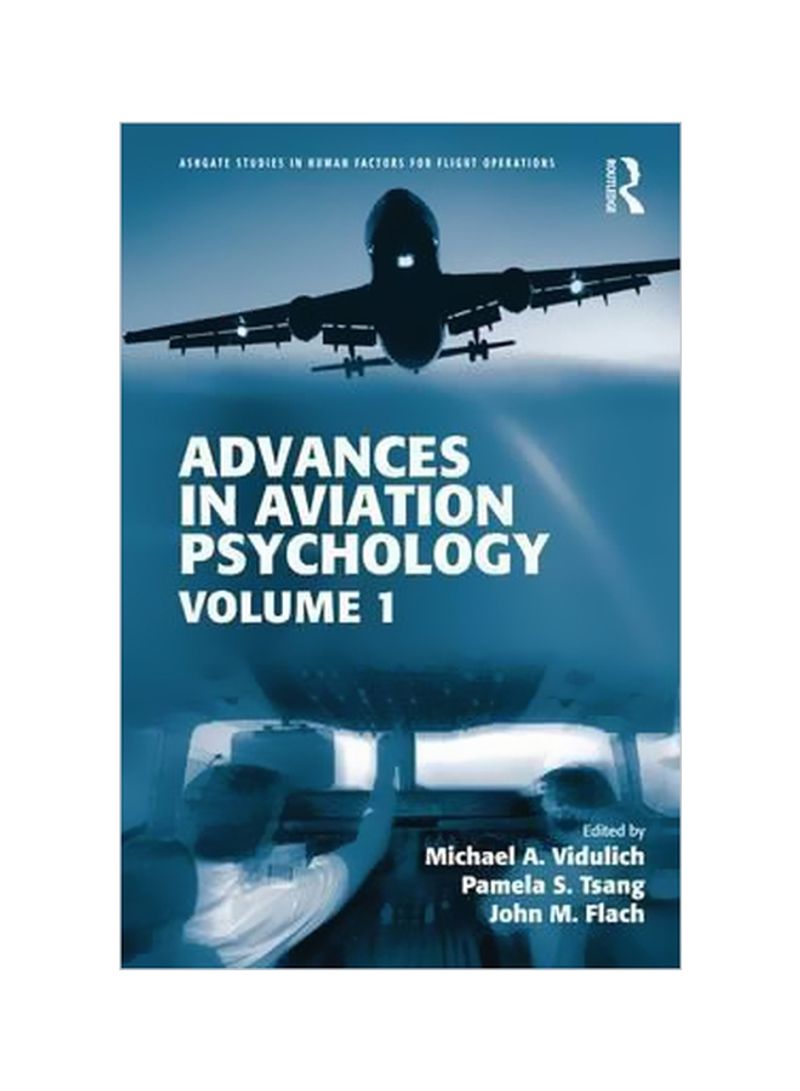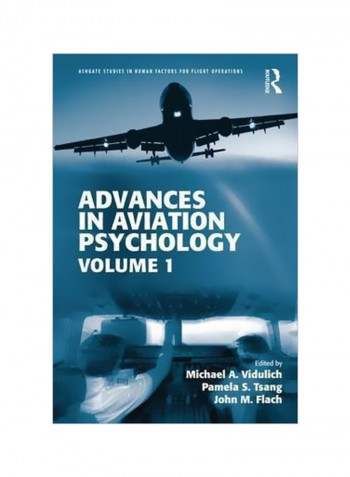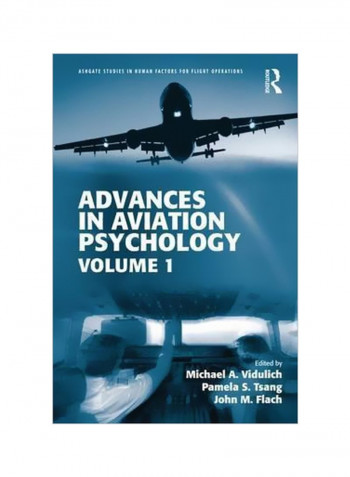Advances In Aviation Psychology (Volume 1) Hardcover
Recommend
Sort by
Rating
Date
Specifications
Author 1
Michael A. Vidulich
Book Description
Aviation remains one of the most active and challenging domains for human factors and applied psychology. Since 1981, the biennial International Symposium on Aviation Psychology (ISAP) has been convened for the purposes of (a) presenting the latest research on human performance problems and opportunities within aviation systems, (b) envisioning design solutions that best utilize human capabilities for creating safe and efficient aviation systems, and (c) bringing together scientists, research sponsors, and operators in an effort to bridge the gap between research and application. Though rooted in the presentations of the 17th ISAP, held in 2013 in Dayton, Ohio, Advances in Aviation Psychology is not simply a collection of selected proceeding papers. Based upon the potential impact on emerging trends, current debates or enduring issues present in their work, select authors were invited to expand on their work following the benefit of interactions at the symposium. The invited authors include the featured keynote and plenary speakers who are all leading scientists and prominent researchers that were selected to participate at the symposium. These contributions are supplemented by additional contributors whose work best reflects significant developments in aviation psychology. Consequently the volume includes visions for the next generation of air management and air traffic control, the integration of unmanned (i.e. remotely piloted vehicles) into operational air spaces, and the use of advanced information technologies (e.g. synthetic task environments) for research and training. This book is the first in a series of volumes to be published in conjunction with each subsequent ISAP. The aim of each volume is not only to report the latest findings in aviation psychology but also to suggest new directions for advancing the field.
Language
English
Publisher
Taylor & Francis Ltd
Publication Date
28 December 2014
Number of Pages
302
About the Author
Michael A. Vidulich is a Senior Scientist at the Air Force Research Laboratory's Human Effectiveness Directorate's Applied Neuroscience Branch. He served as the Technical Advisor for the Warfighter Interface Division from 2006 to 2013. He is also a member of the adjunct faculty of the Wright State University Department of Psychology, where he has taught since 1989. Previously, he was a research psychologist at NASA Ames Research Center. He received a B.A. (Psychology) from State University College of New York at Potsdam, a M.A. (Psychology) from The Ohio State University, and a Ph.D. (Engineering Psychology) from the University of Illinois at Urbana-Champaign. His research specializes in cognitive metrics for human-machine interface, evaluation, and adaptation. He co-edited the volume, Principles and Practice of Aviation Psychology with Pamela Tsang. Pamela S. Tsang is professor of psychology at Wright State University in Dayton, Ohio. Previously, she was a National Research Council post doctoral fellow at NASA-Ames Research Center. She received her A. B. (Psychology) from Mount Holyoke College and her Ph.D. (Engineering Psychology) from the University of Illinois at Urbana-Champaign. Her research interests are attention and performance, extralaboratory-developed expertise, cognitive aging, and aviation psychology. She is interested in applications of her research in a wide variety of domains that include aviation, surface transportation, and medicine. She co-edited the volume, Principles and Practice of Aviation Psychology with Michael Vidulich. John M. Flach received his Ph.D. (Human Experimental Psychology) from The Ohio State University in 1984. John was an assistant professor at the University of Illinois from 1984 to 1990 where he held joint appointments in the Department of Mechanical & Industrial Engineering, the Psychology Department, and the Institute of Aviation. In 1990 he joined the Psychology Department at Wright State University. He served as
Editor 1
Michael A. Vidulich
Editor 2
Pamela S. Tsang
Editorial Review
This collection of selected symposium papers provides a representative cross-section of the field of aviation psychology and gives readers a good sense of current issues, research progress, and continuing challenges. The keynote addresses provide insightful overviews of several critical topics, and the individual papers illustrate the various research approaches being taken, the power and limitations of those approaches, and the current state of knowledge for a wide range of topics.'Key Dismukes'The editors have created an exceptional selection of chapters ranging from state-of-the-art syntheses to data-driven empirical studies. The raw materials were provided by the 2013 Ohio Symposium on Aviation Psychology. Many conference proceedings lack coherence and consistency but this collection exceeds expectations. Beginning with a fascinating historical overview by the editors the papers cover a number of topical issues including NextGen, ecological interface design and selection and training. Leveson's chapter on system safety is a particular standout. Many of the authors are key figures in their areas and their chapters provide essential reading for anyone with an interest in aviation psychology and human factors. There is a notable geographical diversity of contributions with half-a-dozen chapters authored by European experts. This is far more than an ad hoc collection of conference presentations but is a well-thought out and carefully crafted guide to the latest developments in aviation psychology.'David O'Hare, University of Otago, New Zealand
Editor 3
John Flach



